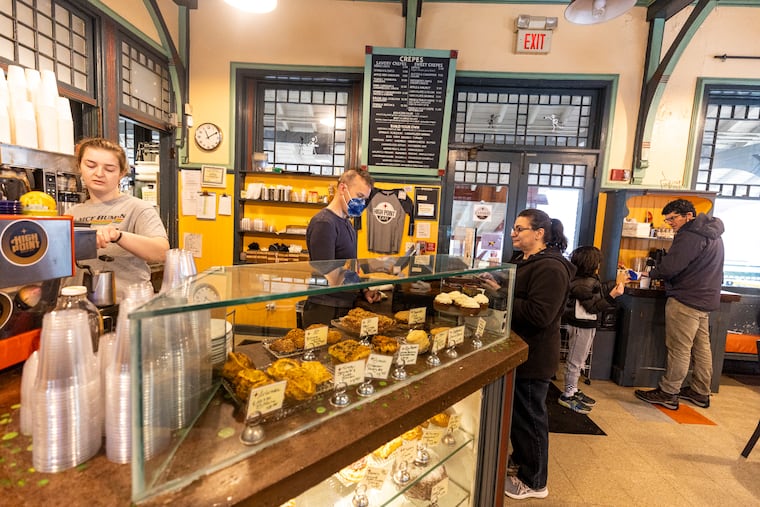Developer Ken Weinstein gets 99-year lease on five neglected SEPTA stations
SEPTA had long neglected station houses on its Northwest Philly Regional Rail lines and was looking for a private partner to rehab the buildings.

SEPTA’s board approved a deal Thursday that would give developer Ken Weinstein’s Philly Office Retail 99-year leases on five historic, but long neglected, rail stations in Northwest Philadelphia.
Weinstein was the only developer to bid on all five Victorian-era stations: Tulpehocken in Germantown; Carpenter, Mount Airy, and Upsal in Mount Airy; and Gravers Lane in Chestnut Hill.
“This is not something that developers are looking to do — spending a lot of time and energy on restoring these relatively small spaces — but sometimes you do a project that’s good for the community and not necessarily good for your bottom line,” Weinstein said.
The developer already leases three stations, including the Richard Allen Lane stop in Mount Airy, which rents the renovated station to High Point coffee shop on the ground floor and a rental apartment on the second.
Outside Northwest Philadelphia, Philly Office Retail leases the stations at Fort Washington and Ardsley, which also host coffee shops. Those leases are all for 20 to 30 years.
A similar retail setup is probable at Upsal Station because a coffee shop had previously been in that building. The Gravers Lane station is unlikely to host commercial uses. It could be used as a single-family rental home.
“The Gravers Lane station, because of how it is laid out and more hidden in the community, was likely to be used just for residential use,” Weinstein said. “For the other three, maybe coffee shops, professional offices, or yoga studios. It doesn’t depend on what we want it to be. It depends what somebody wants to lease it for.”
Each rehabbed station building would contain at least one apartment, which Weinstein says will cut down on crime or vandalism around the stations.
“Before we restored and renewed the Richard Allen station, there was a considerable amount of graffiti and crime around the station,” he said. “There was clear and immediate benefit to the immediate neighbors and the community.”
The stations date to the late 19th century, when what are now the Chestnut Hill East and West Lines were owned by two competing private railroad companies. The buildings are intricately designed in the Victorian style, and two are designed by famed architect Frank Furness.
But they have been unoccupied for an average of 10 years, SEPTA says.
Philly Office Retail’s leases will be for a nominal $1 per year because SEPTA sees Weinstein taking control of the buildings as a huge cost savings. The developer is known for renovations of historic buildings and is often an ally of preservationists.
Currently maintenance costs SEPTA about $30,000 per station annually. SEPTA projects that if the agency were to do renovations itself, it would cost an additional $4 million in total. Weinstein estimates his renovation costs at $1.5 million.
“This is a win-win situation for SEPTA and the Northwest Philadelphia community,” said Kelly Greene, a SEPTA spokesperson. “It is also another example of how we continue to do our part to control costs and be good stewards of taxpayer dollars.”
The transaction comes amid larger uncertainty for SEPTA’s Regional Rail service in the Northwest. Although Gov. Josh Shapiro intervened to stave off an immediate funding crisis in November, SEPTA needs a permanent funding fix amid structural post-pandemic issues of ridership in the era of hybrid work.
Organizers have been building support in the neighborhoods along the Chestnut Hill West line, which is especially endangered, to try to shore up support for the trains.
Both Weinstein and SEPTA say the deal will still be positive, even if one of the rail lines is closed.
“Philly Office Retail sees these sites as a community benefit, not just an asset to the SEPTA rider,” Greene said. “These five historic buildings also have the potential to become community hubs — not just reliant on ridership.”